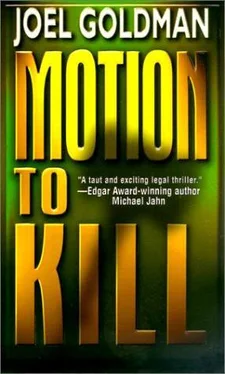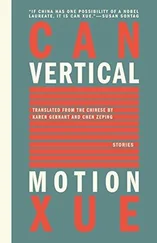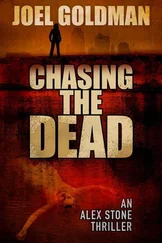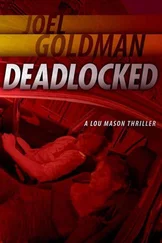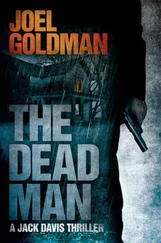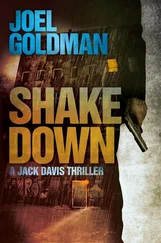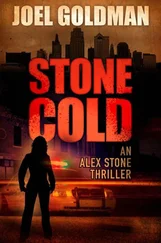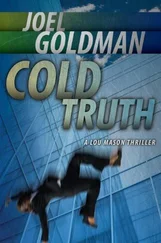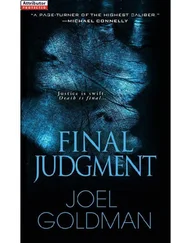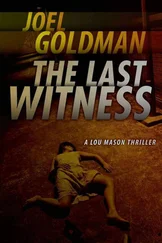Joel Goldman - Motion to Kill
Здесь есть возможность читать онлайн «Joel Goldman - Motion to Kill» весь текст электронной книги совершенно бесплатно (целиком полную версию без сокращений). В некоторых случаях можно слушать аудио, скачать через торрент в формате fb2 и присутствует краткое содержание. Жанр: Триллер, на английском языке. Описание произведения, (предисловие) а так же отзывы посетителей доступны на портале библиотеки ЛибКат.
- Название:Motion to Kill
- Автор:
- Жанр:
- Год:неизвестен
- ISBN:нет данных
- Рейтинг книги:4 / 5. Голосов: 1
-
Избранное:Добавить в избранное
- Отзывы:
-
Ваша оценка:
- 80
- 1
- 2
- 3
- 4
- 5
Motion to Kill: краткое содержание, описание и аннотация
Предлагаем к чтению аннотацию, описание, краткое содержание или предисловие (зависит от того, что написал сам автор книги «Motion to Kill»). Если вы не нашли необходимую информацию о книге — напишите в комментариях, мы постараемся отыскать её.
Motion to Kill — читать онлайн бесплатно полную книгу (весь текст) целиком
Ниже представлен текст книги, разбитый по страницам. Система сохранения места последней прочитанной страницы, позволяет с удобством читать онлайн бесплатно книгу «Motion to Kill», без необходимости каждый раз заново искать на чём Вы остановились. Поставьте закладку, и сможете в любой момент перейти на страницу, на которой закончили чтение.
Интервал:
Закладка:
“No place. She’s dead. Killed in a car wreck ‘fore my folks moved in.”
From the back, Mason heard another wailing voice cry out. The toddler bolted while the baby spit up. She didn’t have to say good-bye.
CHAPTER SEVENTY-ONE
Eighteen-sixty Lincoln was the address of the Loving Hands Convalescent Center, a low-slung, U-shaped building made of sandblasted brick. Heat waves radiated off a playground on the south side. Overgrown weeds had erupted through the asphalt, wrapping around the legs of a steel jungle gym. It was the only landscaping. A faded tire hung from a chain in the center of an otherwise empty swing set.
Mason parked in the circle drive next to a barren flagpole. The plaque embedded at its base declared that the alumnae of Lincoln Elementary School had donated it in 1953. A pair of oversized, pale pink cupped hands had been painted over the entry beneath the gracious claim that those inside had cared for loved ones since 1985. He wondered if any of the alumnae had reenrolled at their alma mater, proving again that life is a circle.
Airplane propeller-sized fans stood in the lobby blowing antiseptic flavored air down each stuffy hallway, though the breeze passed by the closed doors of the patients’ rooms.
He shuddered, remembering when his aunt Claire dragged him to a nursing home to visit her mother. He was six. His grandmother was ancient. She lay in bed, near death, her hair fanned out around her head.
Claire had patiently brushed her hair, working out the tangles. He had looked into her cloudy black eyes sunk deep into her face. Her skin had been brittle and translucent, like looking through tissue paper into her skull. Her parched lips had been shut, silencing the voice that used to sing him to sleep, her gnarled hands lying uselessly at her sides. She had smelled like the stuff that the cleaning lady used to clean the toilets. He never went back.
Vernon Phillips lived in room twelve on the north wing. So did three other people, each cordoned off by a peach-colored vinyl curtain suspended from a track along the ceiling; four to a classroom, each bed with a view. Probably a lot less crowded than the days when kids roamed the halls.
A clipboard with an erasable surface hung on each classroom door, listing the occupants and their bed numbers. Vernon was bed number three. Each patient’s space was furnished with a chair for visitors. Sandra Connelly sat in Vernon’s.
“About time you got here, lover boy. I almost gave up on you,” she said as she stood.
Sandra had an inexhaustible capacity for the unexpected. She had made it plain that she was doing her own investigation. Still, he was surprised to see her.
“Sorry to keep you waiting. I had some other stops to make.”
“Tell me all about it.”
“Later. How’s Vernon?”
“Like all vegetables. Not good company.”
His chart hung from a hook at the end of the bed. The top page contained the admitting information. He’d been there five weeks following a stroke. Mason put the chart back and looked at the figure lying in bed.
He was propped up, placing them in his line of sight. His gaze passed through them, through the walls, and kept going. Ragged gray stubble covered his chin and peppered his mottled cheeks. A loose-fitting hospital tunic lay over his chest and upper arms. His Adam’s apple bobbed rhythmically, the only sure sign part of him was still with the living.
Mason couldn’t take his eyes off of him. Vernon knew the answers to Mason’s questions, but they were locked inside him. Mason sat at the foot of his bed, staring at him, weary at another dead end.
“Let’s go,” Sandra said. “Maybe you’ll come up with another bright idea.” Mason didn’t move. “Come on, it’s not your fault. We’ll come back on Monday and check the city’s birth records.”
“Good idea. But I think I’ll stay a while. He might come around.”
“Yeah, and the first thing he’ll say is ‘Lou, good to see you. Let me tell you about my daughter.’”
Mason looked at Sandra, feeling the harshness in her, trying to figure out why she was risking her life to solve this case. He decided that she thrived on the combat. It was all about winning.
“Stranger things have happened. I’ll call you.”
“Don’t count on it.”
She waited for him to say something. He ignored her, content to watch the old man’s breathing. Sandra waited in silence for five minutes.
“You damn well better call, Louis,” she said and left.
Twice over the next hour, an aide came in to turn Vernon so that he wouldn’t develop bedsores. She was a copper-colored Hispanic woman, jet-black hair, broad, flat features, and strong hands. Vernon had had eight inches and a hundred pounds on her in his prime. Even now, he retained most of his bulk. Yet she rolled him effortlessly from side to side, massaging his flanks to encourage his circulation. She spoke no English. He hoped for Vernon’s sake that Medicare didn’t ask for her green card.
At three o’clock, she returned with a syringe, rolled up Vernon’s sleeve, and gave him an injection. Smiling at Mason, she moved on to her next patient.
Curious, he picked up Vernon’s chart and studied the doctor’s orders. Vernon was diabetic. He called Blues.
“What’d you find out about Angela’s death?”
“Insulin overdose, just like Sullivan. Cops canceled the suicide.”
CHAPTER SEVENTY-TWO
Now he knew how Sullivan and Angela had been murdered. Vernon could tell him who and why, but he wasn’t talking.
Mason stood at the edge of his bed, staring at him, feeling like an idiot. What did he expect Vernon to do? Listen to a list of suspects and blink once for innocent, twice for guilty?
The Loving Hands people provided a nightstand for each patient’s personal items. A copy of a Kansas City Star newspaper lay on Vernon’s. Mason picked up the newspaper to check for the date. It was two days old. Vernon had had a recent visitor.
Mason dropped the newspaper in the trash can next to the bed and saw a Bible that had been hidden beneath it. The Bible was bound in black leather, Phillips Family Bible embossed in small gold filigree letters on the spine.
Tommy Douchant’s family also had a Bible embossed with the family name. He remembered Tommy showing him the family tree on the inside cover that traced his clan back five generations. Be there, baby, Mason prayed as he picked up Vernon’s Bible.
And so it was written. Vernon Phillips and his wife had been married in 1956. Four years later, a daughter, Meredith, was born. She died in 1990. Beneath her name was the inscription Alice, born to Meredith July 3, 1977. Alice made no sense. There was no Alice. Mason went back to the beginning, to Vernon and his wife. He read her maiden name. Then he knew.
He said good-bye to Vernon and tucked the Bible under his arm. Promising himself that he’d return it when everything was over, he drove straight to Blues’s house, struggling with the last hurdle in solving Sullivan’s and Angela’s murders. How to prove it? A brilliant trial lawyer once told him not to bother him with the facts, just tell him what the evidence was. Now he knew what the evidence was, but he wasn’t certain that he could prove the facts.
He flashed back to the chalkboard at The Limit announcing the symposium on alternative AIDS therapies. He conjured the haunting image of Sullivan injecting himself, thinking it was some experimental AIDS treatment, not realizing he was killing himself. The killer had watched from a safe distance, not wanting to betray any undue interest, content in the knowledge that Sullivan would die by his own hand.
And that would be the killer’s defense, that somehow Sullivan had made a terrible mistake. Whoever Sullivan had bought the phony AIDS meds from had made the mistake.
Читать дальшеИнтервал:
Закладка:
Похожие книги на «Motion to Kill»
Представляем Вашему вниманию похожие книги на «Motion to Kill» списком для выбора. Мы отобрали схожую по названию и смыслу литературу в надежде предоставить читателям больше вариантов отыскать новые, интересные, ещё непрочитанные произведения.
Обсуждение, отзывы о книге «Motion to Kill» и просто собственные мнения читателей. Оставьте ваши комментарии, напишите, что Вы думаете о произведении, его смысле или главных героях. Укажите что конкретно понравилось, а что нет, и почему Вы так считаете.
